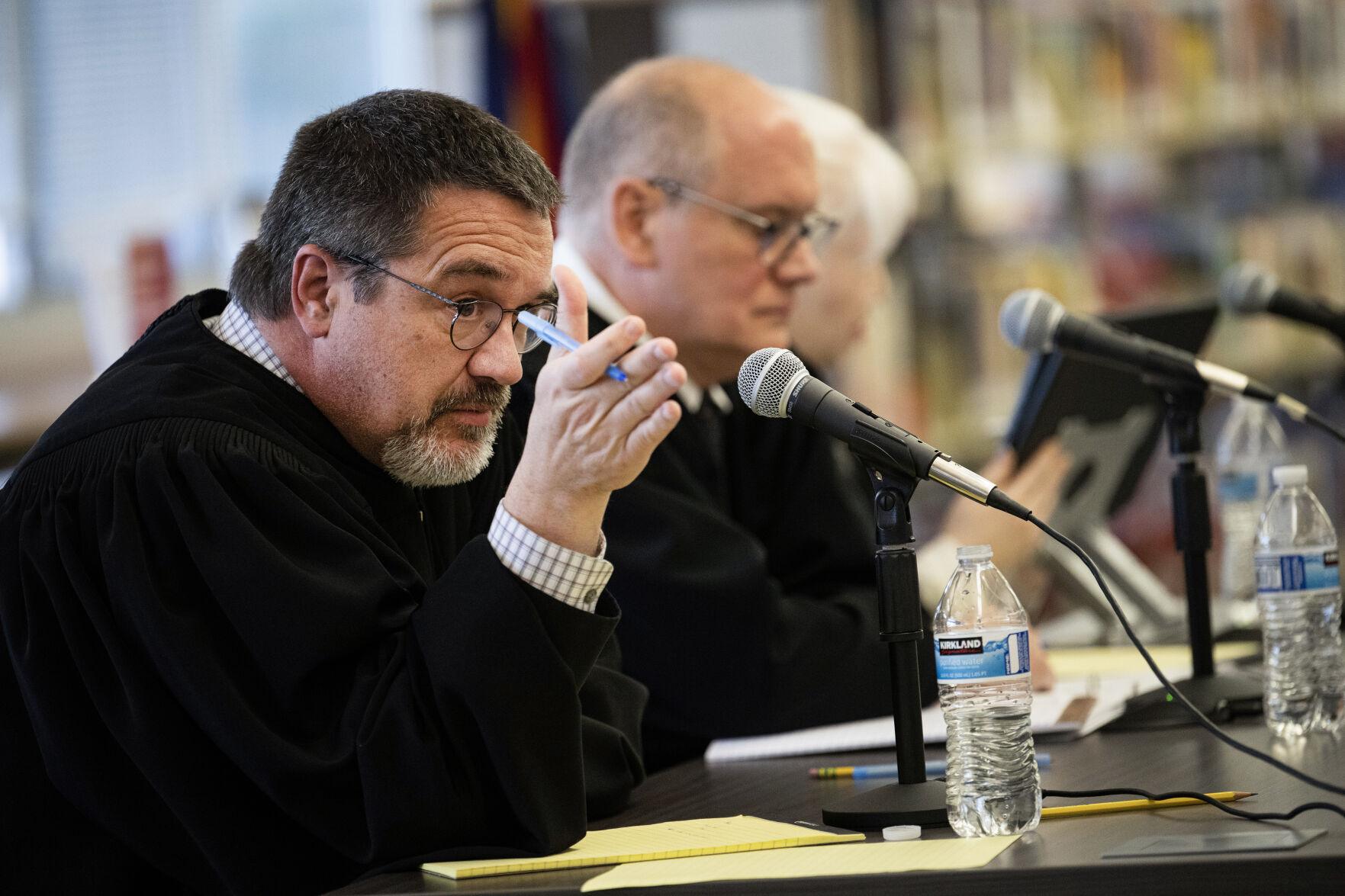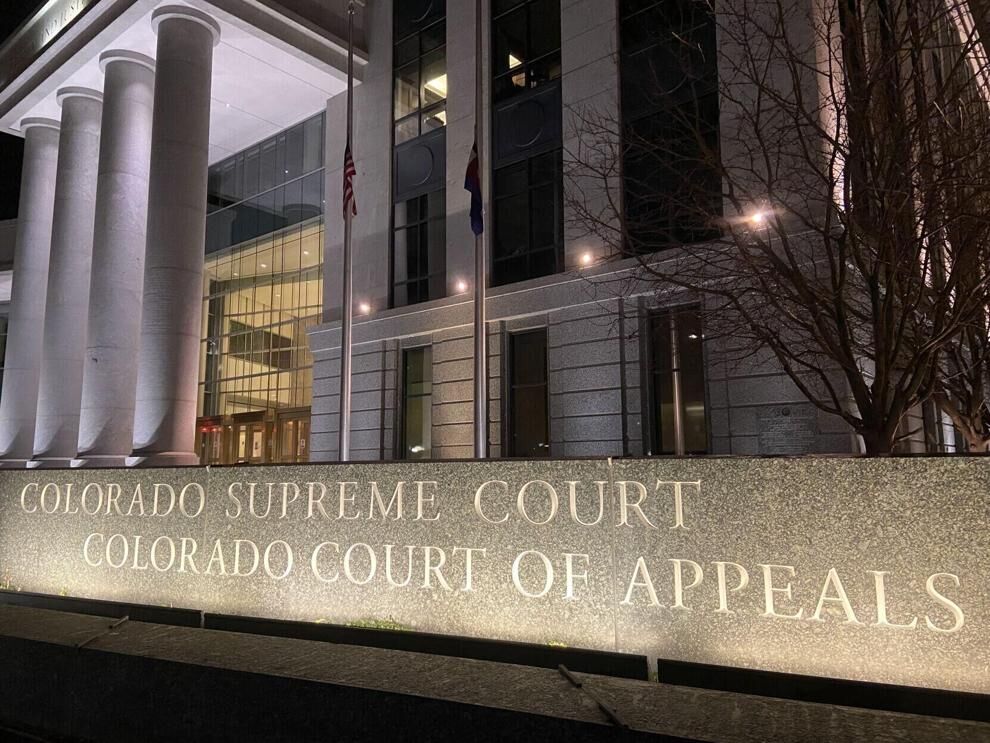Appeals court finds Broomfield police did not coerce confession over phone

Colorado’s second-highest court determined last month that Broomfield police did not coerce a telephone confession out of a suspect by telling him a detective was “not going to look for you.”
Within minutes of answering law enforcement’s call while he was in Mexico, Ricardo E. Munoz-Diaz admitted to killing Amalia Karolina Lopez-Leon in her home. He proceeded to give additional details about the crime to detectives. U.S. and Mexican authorities later extradited him to Colorado, where he stood trial.
Munoz-Diaz argued his statements over the phone call should have been barred as evidence because they were the product of coercion. Immediately before Munoz-Diaz confessed, the detectives had appealed to his faith, pleaded with him to think about the victim’s family and – crucially – told Munoz-Diaz they would not come to Mexico to get him.
A three-judge panel of the Court of Appeals disagreed with Munoz-Diaz, finding that notwithstanding the detectives’ techniques, Munoz-Diaz made clear he was willing to cooperate and he would return to Colorado if he could.
“We first acknowledge that some of the detective’s questioning was arguably coercive,” wrote Judge Ted C. Tow III in the Nov. 9 opinion. But “Munoz-Diaz’s statements were not brought about by coercive police conduct but rather were the product of his willingness – even desire – to ‘pay for his acts’ and to ‘clear this all up’.”
Case: People v. Munoz-Diaz
Decided: November 9, 2023
Jurisdiction: Broomfield
Ruling: 3-0
Judges: Ted C. Tow III (author)
David Furman
Michael H. Berger
Gregory Lansky, a criminal defense attorney, found the panel’s ruling problematic because the court determined Munoz-Diaz voluntarily admitted his culpability only after police gave him “false security” by promising they would not pursue him for the murder.
“Ultimately, I believe it is a significant risk for law enforcement to try to induce confessions by leading suspects to believe they are not coming for them,” Lansky said. “Additionally, a suspect under the belief he or she will not be accountable for his or her statement will not have much incentive to be entirely truthful.”
In October 2015, Munoz-Diaz arrived at the victim’s home to burglarize it, but a struggle ensued and he killed her. Munoz-Diaz then fled to Mexico. Broomfield police eventually managed to get him on the phone, with a bilingual detective speaking to Munoz-Diaz in Spanish, while two English-speaking detectives assisted. No one gave Munoz-Diaz a Miranda warning before asking him about the murder.
“I want to talk to you about the – the girl that – that was killed here,” the detective said. “I know that you were there and I just want to, to know why. … I’m not going to look for you in Mexico. Uh, I’m just telling you – you, that you can’t come back here, OK? But, but, I want you to please tell me what happened that day, and why.”
Munoz-Diaz at first said he “found a dead girl” at the crime scene, but the detective responded that he knew Munoz-Diaz had killed her. He asked Munoz-Diaz to “think about the family, the children she left behind” and that “God will forgive you” if Munoz-Diaz confessed.
“Yes, I accept that I did it,” Munoz-Diaz said, elaborating on how he murdered Lopez-Leon.
The confession came within minutes of the call starting. The detective repeatedly said he was not going to Mexico “at all” to look for Munoz-Diaz, and appealed to Munoz-Diaz’s Catholic faith and desire for forgiveness. Munoz-Diaz, in turn, said he wanted to “clear this up” and was even willing go back to Colorado “to pay for what I did.”
After authorities extradited him, jurors convicted Munoz-Diaz and he received a life sentence for murder.

Munoz-Diaz attempted to exclude evidence of his confession from trial, arguing it was the product of unlawful police coercion through the promise not to come after him. Chief Judge Don Quick ruled that, while he did “not approve” of the detectives’ promise, Munoz-Diaz did speak voluntarily.
On appeal, Munoz-Diaz’s attorney acknowledged during oral arguments that the phone interrogation did not amount to the classic small-room, hours-long pressure campaign in a police station – but argued it was still exploitative.
“When you have literally no coercive environment,” questioned Tow, “and you have immediate or near-immediate capitulation, how can you say that his will was overcome? There has to be some kind of overbearing, right? Some kind of wearing him down?”
“If they promise an instantly recognizable benefit,” responded attorney Joseph T. Goodner, referring to the detectives’ promise not to come after Munoz-Diaz, “a defendant can’t be faulted for immediately recognizing that that’s a great deal.”
Ultimately, the appellate panel conceded there were factors suggesting coercion, including the lack of a Miranda warning, the length of the call and the promise not to come after him. Weighing in the opposite direction, Munoz-Diaz was not in custody and was free to hang up.
However, Munoz-Diaz’s statements indicating a willingness to be held accountable cut against a finding of coercion.
“In other words, his statements were freely self-determined and voluntary,” Tow wrote.
Lansky, the criminal defense attorney, worried that police may suggest suspects are insulated from consequences in order to obtain confessions that do, in fact, trigger arrests.
“Colorado courts possess the constitutional duty to safeguard against the use of coerced and involuntary confessions in criminal trials. Respectfully, I’m not certain that was done here,” he said.
The panel originally released its decision in August as an “unpublished” opinion, meaning one not intended to set a precedent. Goodner requested the Court of Appeals reissue the decision as precedential, given that no prior case involved police conduct similar to that in Munoz-Diaz’s investigation.
Munoz-Diaz has moved to appeal to the Colorado Supreme Court.
The case is People v. Munoz-Diaz.













